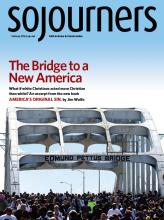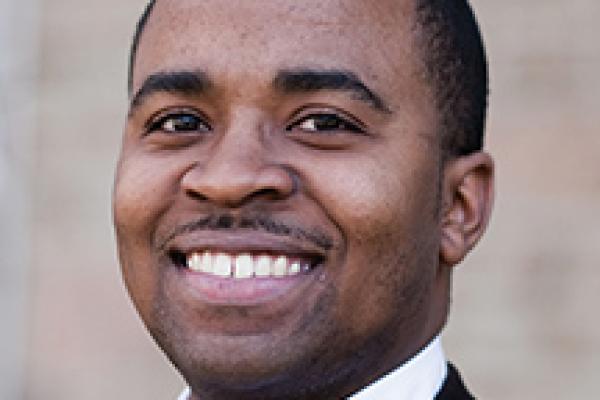Andrew Wilkes is an African Methodist Episcopal minister who serves on the editorial board of Democratic Socialists of America’s online journal, Religious Socialism. Danny Duncan Collum interviewed him in October 2015. Click here to read more about Christianity and socialism in this month's Sojourners.
Sojourners: Why have you chosen to identify yourself as a socialist?
Andrew Wilkes: What began to change my thoughts is when I realized that another way of organizing land, labor, and capital is possible and was already happening locally, regionally, and in some respects nationally. Gar Alperovitz’s book What Must We Then Do?, John Nichols’ book The “S” Word, and Martin Luther King Jr.’s witness of a black social gospel and democratic socialism all proved seminal to me.
What does it mean to you to call yourself a socialist? Socialism, on a basic level, prioritizes human rights over property rights and our obligations to one another over conventions about the natural, efficient operations of markets. Socialism means a way of making decisions about the use of resources that seeks to end preventable human misery more than turning an ever-increasing profit. It’s an ethical vision that also entails shared sacrifice for mutual gain—for instance, paying more in taxes to support health care, education, and other services that are free at the point of access.
I do not take socialism to mean the complete abolition of private property, contracts between individual parties, or the utter erasure of markets. Instead, socialism for me means the ascendancy of meeting human needs through public provision, cooperative ownership, and private businesses that include collective bargaining and government regulation. It also means that working individuals who produce goods and services have a significant say in shaping, owning, and influencing the institutions that shape their day-to-day quality of life.
How do you see those ideas relating to your Christian identity and Christian ministry? I joined the Religious Socialists of DSA (Democratic Socialists of America) to find an institutional outlet for my political commitments. I think it’s inaccurate to suggest that the Bible can be marshaled in direct support of socialism. I do think that every Christian has to inquire about the society that best represents or foreshadows the dreams and desires of God for humanity. For me, the kind of socialism I’ve just described is the best society.
Read the Full Article

